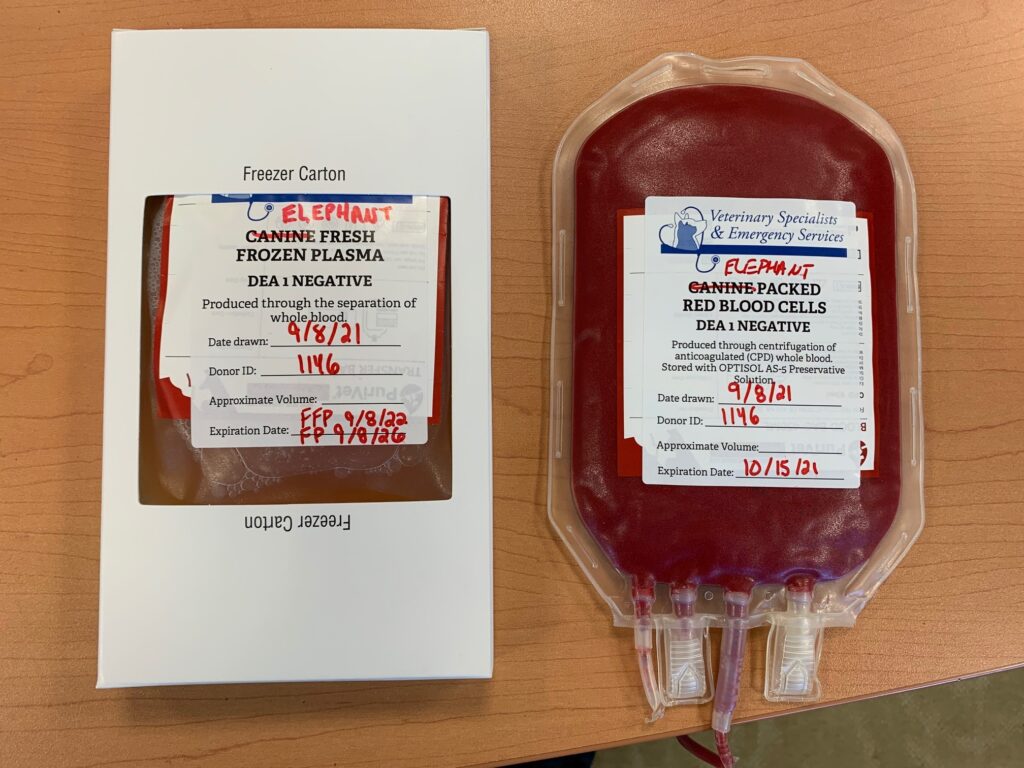September 28, 2021
Elephant endotheliotropic herpesvirus (EEHV) is a naturally occurring virus of elephants in the wild and in zoos. Historically, the virus has been associated with only Asian elephants; however, African elephants are increasingly affected by the virus. A latent, or hidden, phase can reside in an elephant no signs or symptoms. When it comes out of latency and circulates in the bloodstream, EEHV causes severe disease and often rapid death, especially in weaned calves. While there is no cure for EEHV, the elephant community, led by veterinarians and researchers working in and with AZA-accredited zoos, is learning more about the virus and how to manage it, increasing survival rates. Elephants with EEHV require aggressive treatment with antivirals, intravenous fluids, and often blood products.Although Genny C, Lilac, and Moki do not have EEHV, and due to their age, are at very low risk, they can still help their counterparts who may be at risk. Because our elephants voluntarily participate in their own health care, especially allowing their blood to be taken, Seneca Park Zoo is to contribute to an “elephant blood bank” formed by a consortium of zoos housing elephants.
Genny C recently became our first donor, allowing us to take about 1 liter of her blood. The blood was collected into a special bag containing anticoagulants to keep the blood from clotting, and nutrients to maintain the red blood cells. Thanks to our friends at Veterinary Specialists and Emergency Services, this blood was spun in a special centrifuge, and separated into RBCs and fresh frozen plasma (FFP). We can store the RBCs for 5 months and the FFP for a year, and if an elephant becomes ill with EEHV, or any disease that requires blood products, we can send these products to help with their treatment.
The high quality of our veterinary care program, coupled with our excellent positive reinforcement training program and Genny C, Lilac, and Moki’s relationship with their keepers, allows Seneca Park Zoo to continue to contribute to the larger zoo community!
– Dr. Louis DiVincenti, Assistant Zoo Director – Animal Care and ConservationDonate

